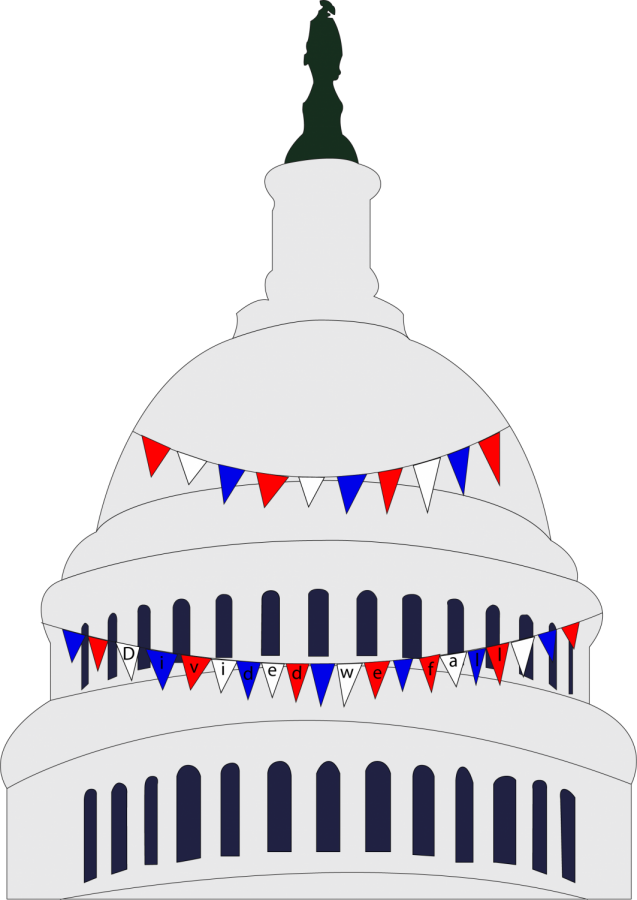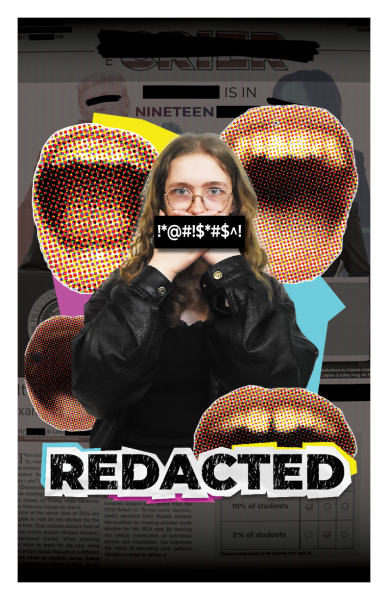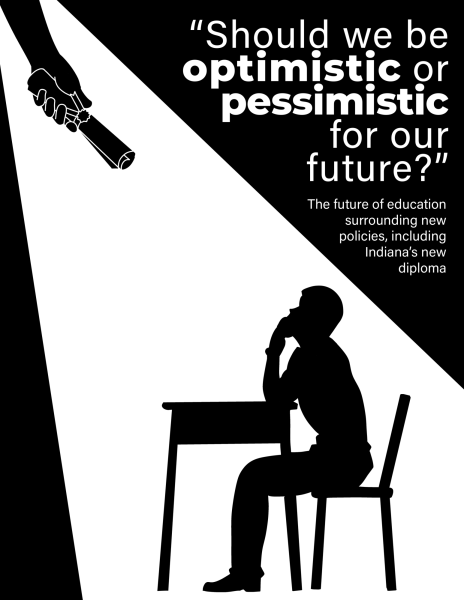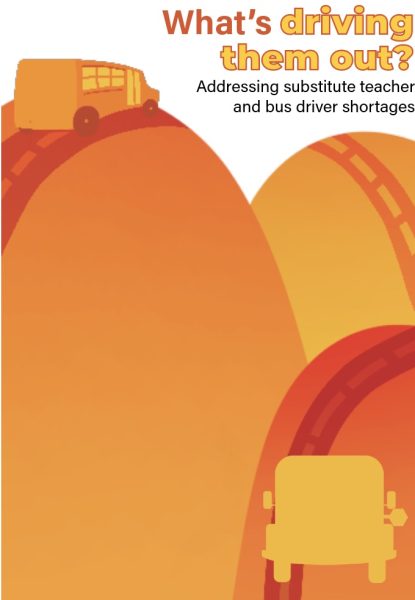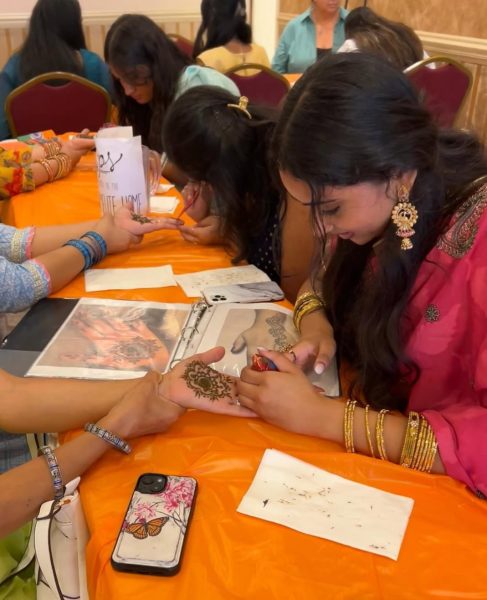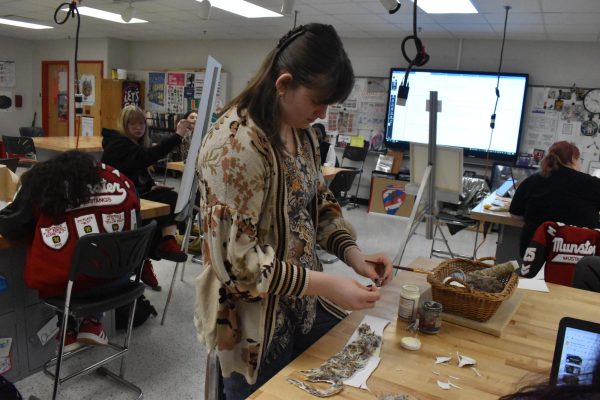UNITED WE STAND, DIVIDED WE FALL: Students reflect on Capitol mobbing and inauguration
Students and teachers share disbelief and distress in the wake of Capitol mobbing
When Myanne Zachary, junior, found out about the mobbing of the U.S. Capitol building, she was in a state of utter disbelief.
“I was shocked,” Myanne said. “The very first headline I saw of it, I thought it was fake to be honest. I was like, ‘there’s no way this is happening. That’s so ridiculous. This is crazy.’ Then, within one headline being posted, I saw seven more.”
Myanne was one of millions of Americans who watched in disbelief as the Capitol, which was housing members of Congress working to confirm the election results of 2020, was overrun by outraged supporters of former President Donald Trump. This crisis comes weeks before the highly anticipated inauguration of President-elect Joe Biden, occurring today. Struck by the reality of the situation—the reality that has since impacted every realm of the political, social and civil sector—Myanne, like all Americans, was forced to reckon with the numerous connotations that the storming could hold for the country.
“(Initally) I felt really stupid because I was thinking, ‘not in America, not in the country I live in, not a three hour plane ride away,’” Myanne said. “(Now), I’ve been thinking about it for a while, especially in APUSH (AP U.S. History). Since we’ve been learning about the reconstruction, I have been really trying to look into where we came from, and how we got here. I haven’t found the answers yet.”
In the wake of the event that Americans are still reeling from, Myanne has already taken to using a public platform to express the distress further aggravated by the storming. Inspired by the condition of the nation in the wake of one of its darker stages, Myanne has composed a speech piece reflecting on the Capitol with a focus on its racial implications. Featuring a collection of poems, the piece is titled “The Great White Wall.”
“What inspired it was that day (the Capitol storming),” Myanne said. “My speech coach and I, Ms. (Kathleen) Boyle, we were just sitting and we couldn’t even talk about my piece. We were sitting there on the phone for almost two hours feeling like ‘I can’t believe this is happening right now,’ and we just had this entire rant session. Ms. Boyle was just listening to me rant and goes, ‘let’s make this the piece.’ We found some really amazing pieces that we felt were extremely prevalent.”
Though there are numerous factors to consider when analyzing the incident that has shaken the country once again, some say the reaction following the Capitol breach reinforces the deep questions raised by the wave of protests witnessed throughout last year.
“I think we have to be careful not to draw too many conclusions,” Mr. Michael Gordon, Government and Ethnic Studies teacher, said. “I think it’s really scary if you look at one event, and describe that as the epitome for everything. With that said, there is certainly a recognizable history in the aggressiveness in response to Black Lives Matter as they’re meant to the Trump rallies, the anti-vaxxers and so forth. And it has to be acknowledged. I think one would have to be blind to not see the difference in how we as a society react to various movements.”
Though the political state of the country has been divided long before chaos ensued at the Capitol, the storming witnessed two weeks ago represents an unsettling product of the heightened tension and polarization witnessed in recent time.
“Divisiveness in the country is nothing new,” Mr. Steve Lopez, AP U.S. History teacher, said. “But, this divisiveness seems to be a little bit more unique in the realm of, it’s not just Democratic and Republican. There seems to be more of a societal divide that’s rearing its head. “Over the next four years, there’s the hope that this chasm can possibly be overcome, and that we can find a sense of unity. The optimist wants to believe that, (but) the realist is going to cite the numbers of the 78 million plus that voted the way that they did and lost.”
For Mr. Lopez, the Capitol riot is not just another unforeseen incident that has followed the cataclysmic turn of events that began last year, but a historical moment of disturbance, surprise and trial of the American character.
“Just watching it all unfold, there was just disbelief,” Mr. Lopez said. “The attitudes are probably the same that most Americans felt. (We) never thought we would see it happen. We had seen all of these different things that we’d never thought we would see happen, and then it culminates there. It was tragic. t was tragic and sad that so few Americans that are disappointed politically, would take the measures that they did to demonstrate that disappointment. We have the right to peaceably protest—we all understand that—and to peaceably assemble, but to storm our own nation’s capital as a result of disaffection with a political outcome, is just something that this country’s never seen before.”
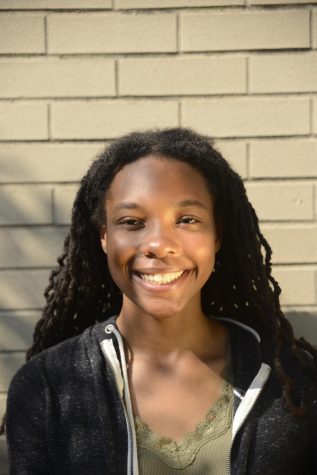
Hi, I'm Atarah! I am a senior and the Editor-in-Chief of Crier. I absolutely love to read and write. My favorite book has (and likely always will be)...
Hi! My name is Lana, and I'm editor in chief this year! My hobbies include making frog rings, sending snail-mail to my friends, bullet journaling, photography,...



